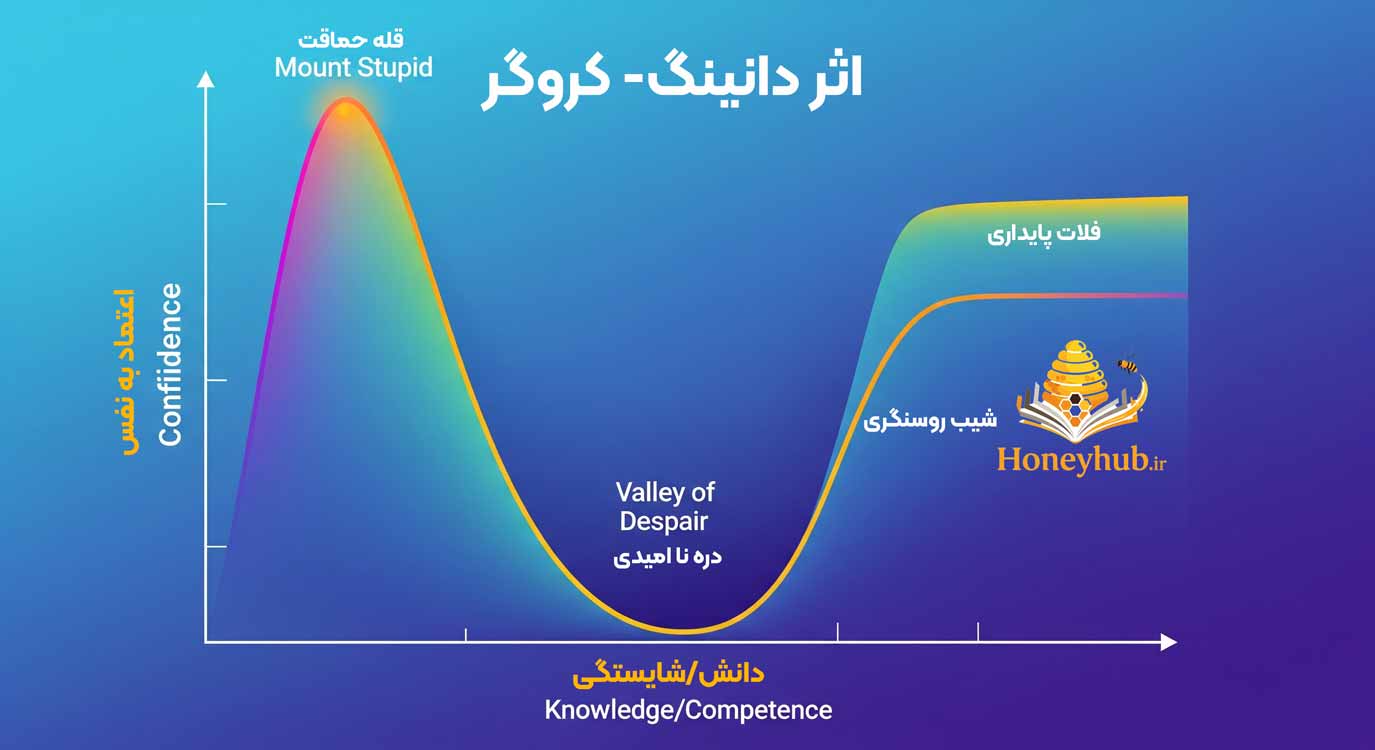Does your mozzarella refuse to stretch or just burn? The secret is science. From "pasta filata" to the crucial role...
The Dunning-Kruger Effect: When Overconfidence Hides Ignorance
Imagine walking into a meeting. One person speaks with unwavering certainty on a topic you're an expert in. Every sentence is an absolute claim, without a shred of doubt. But you know the truth: This person has no idea what they're talking about.
Meanwhile, you, the actual expert, hesitate. You might say, "Well, it probably depends on..." or "I think that's true, but we'd have to look at...". Why? Because you know how much you don't know.
This isn't a coincidence. It's a profound psychological phenomenon known as the Dunning-Kruger Effect. And it’s not just in the workplace—it’s in our homes, on social media, in our choices, and even in our relationships.
The Vicious Cycle: Ignorance + Confidence
In 1999, two prominent psychologists, David Dunning and Justin Kruger, made a fascinating discovery at Cornell University: the less we know, the more we think we know.
That’s right. They proved that people with low ability in a specific area not only overestimate their own competence but also lack the tools to recognize they're making mistakes.
It’s a vicious cycle:
- Unaware of Your Blind Spots: When you lack foundational knowledge, you can't identify what you don't know. Your brain fills in the gaps with assumptions and calls them "facts."
- Ignoring Expertise: Inexperienced people can't grasp the true skill level of an expert because that level of knowledge is unimaginable to them. So they easily assume, "I know as much as they do."
In essence, our ignorance prevents us from seeing our own ignorance. It’s not a personal flaw, but a cognitive bias we all experience.
The Journey of Awareness

True confidence is born at the intersection of knowledge and humility.
This effect is a journey, not a fixed point. It’s a path every learner takes. This journey has four common stages:
| Stage | Description |
|---|---|
| 1. Mount Stupid | Where a novice with a small amount of knowledge feels like they know everything. Confidence is at its peak, while actual knowledge is at its lowest. Like someone who watched a YouTube video and thinks they can perform surgery. |
| 2. The Valley of Despair | As they gain more knowledge, the person realizes the vastness of their ignorance. Confidence plummets. This is the crucial point: this feeling of despair is a sign of growth. |
| 3. The Slope of Enlightenment | With persistence and continued learning, a person’s knowledge gradually increases. Their confidence rises again—but this time, it’s based on experience, not self-deception. |
| 4. The Plateau of Sustainability | At this stage, the person becomes a true expert. Their confidence is balanced, logical, and based on reality. They know what they know—and, more importantly, what they don't. |
When Talking is a Sign of Ignorance
This phenomenon isn't new. Ancient wisdom across cultures spoke of it, just in different terms. Talking without awareness, or claiming knowledge, has been with humanity since the dawn of history.
The first thing despised by God is excessive and aimless talk, and the worst of it is claiming a knowledge one does not possess.
Nahj al-Balagha
This saying perfectly captures the "Mount Stupid" of the Dunning-Kruger effect: a person who knows nothing not only thinks they know, but speaks with a boundless, false certainty.
In contrast, the Greek philosopher Socrates famously said, "I know that I know nothing." This wasn't a joke, but a sign of intellectual maturity. Only a person who has grasped the vastness of their ignorance could make such a statement.
These two quotes represent the "Valley of Despair" and "Slope of Enlightenment" in the Dunning-Kruger model: when we realize how much we don't know, our false confidence shatters—and that moment is the true beginning of learning.
How to Escape the Trap of Confident Ignorance
Here’s the good news: we are all somewhere on this journey. No one is immune. The even better news is that awareness is the first step to freedom.
- Embrace a Growth Mindset: Believe that knowledge and skills can be changed and improved. Never stop learning.
- Seek Honest Feedback: Ask for honest evaluations from trusted people and experts. Constructive criticism can be your most valuable guide.
- Ask Questions: Instead of making claims, ask questions. Curiosity is one of the most vital traits of a wise person.
- Practice Intellectual Humility: Understanding you can never know everything allows you to enjoy the process of continuous learning and avoid making hasty judgments.
"The whole problem with the world is that fools and fanatics are always so certain of themselves, and wiser people so full of doubts."
— Bertrand Russell
Conclusion: The Smartest Answer is "I Don't Know"
In a world where anyone can become an "expert" with a single social media post, the greatest act of courage might be to simply: stay quiet when you don't know.
Saying "I don't know" isn't a sign of weakness; it's a sign of maturity. It means you understand that human knowledge is a boundless ocean—and you are just a single drop in it.
True confidence doesn't come from claiming knowledge. It comes from asking, listening, and accepting your limitations. When you can say, "I still don't know," that's when you've truly started to learn something.
At Honey Hub, we respect this humility. That's why every product that reaches you is the result of years of experience, meticulous oversight, and respect for nature. Because we believe a smart choice is made when a person understands what they don't know—and seeks out honest, reliable sources.
Journey to Knowledge with Honey Hub
Because respect for knowledge, for nature, and for yourself is our top priority.
Explore our Authentic ProductsSources and Further Reading
To dive deeper into this topic, we recommend the following credible sources:





















Latest comments